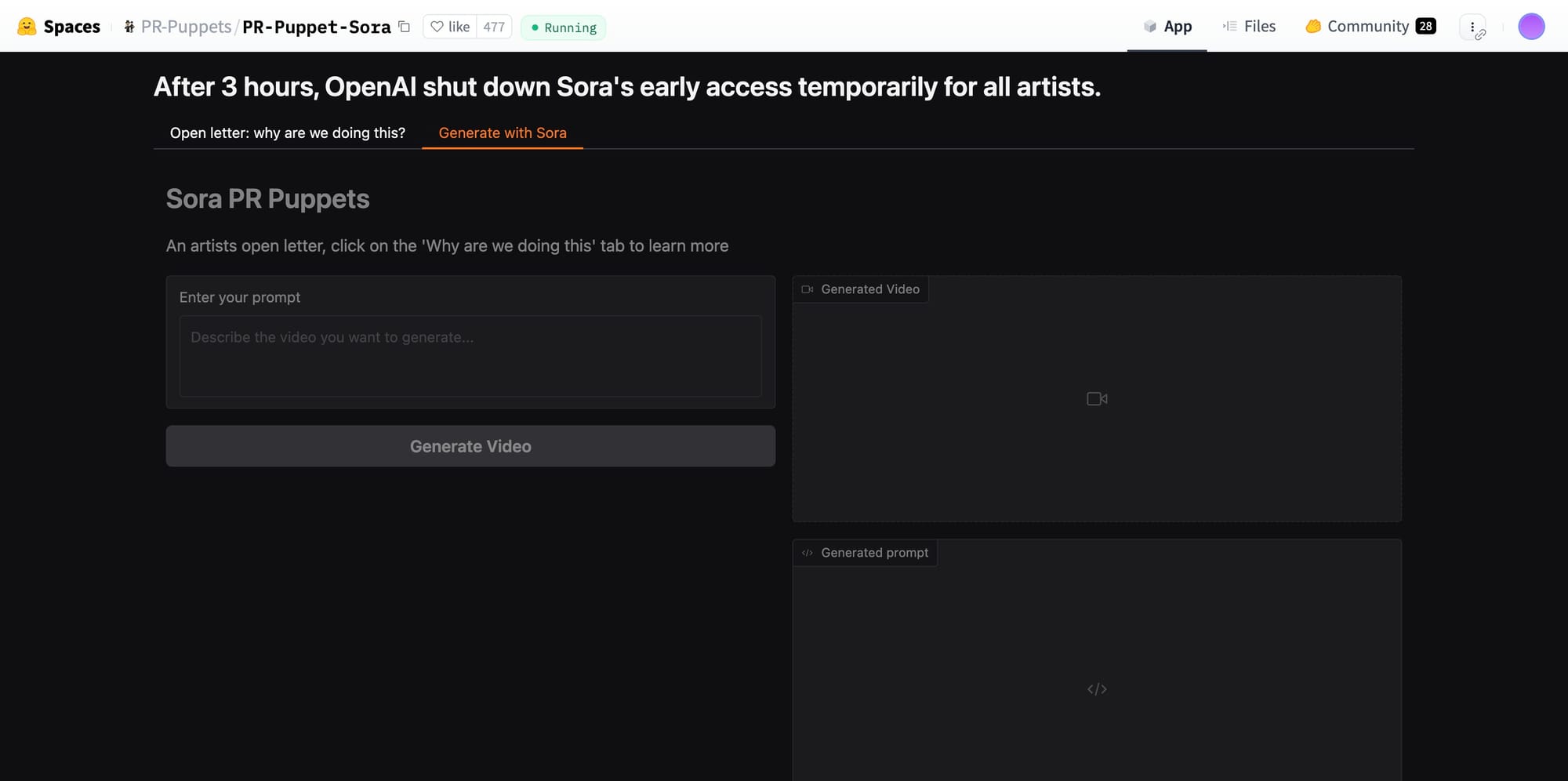The Sora API leak has brought to light important questions about technology access, security, and ethics in the development of advanced AI models. Sora, OpenAI’s highly advanced text-to-video model, was initially showcased last year and gained recognition for its ability to produce high-quality videos. However, since then, the model has remained unavailable to the general public, accessible only to a limited group of selected creators and corporate partners.
Recently, a significant breach occurred when someone with access to the restricted Sora API published a script on Hugging Face. This script allowed the public to interact with the model for a brief three-hour window before OpenAI shut it down. During this time, users were able to generate videos, validate Sora's authenticity, and explore its capabilities. The leak was further verified through code inspection, revealing that requests directly interfaced with the Sora backend, and even uncovered multiple versions of the model, including a high-performance “Turbo” variant.
One of 85 Sora generated samples
Despite the excitement, the sudden surge in usage caused scalability issues, both for the Hugging Face website and the Sora backend. For most users, it became nearly impossible to access the model after the first 20 minutes due to traffic overload. However, those who managed to test it noted that it allowed the creation of up to 10-second videos, with adjustable visual quality.
When compared to other publicly available text-to-video models like Kling AI, Sora showed both strengths and weaknesses. While its level of detail and instruction-following capabilities stood out, some users observed that its overall quality was not significantly better. Nonetheless, Sora impressed with a high success rate and minimal artifacts, showcasing its advanced technical refinement.
OpenAI Sora has leaked pic.twitter.com/6HDqDWkYaz
— ʟᴇɢɪᴛ (@legit_rumors) November 26, 2024
The incident also raises ethical questions. The individuals behind the leak released a manifesto criticizing the exclusive corporate control of such advanced tools. They argued that groundbreaking AI technologies should not be restricted to select entities but should be accessible to the public. This act of defiance could have implications for how OpenAI approaches the security and accessibility of its products in the future.
It remains uncertain how this event will influence the trajectory of Sora's development and potential release. OpenAI may need to reassess its API security measures, customer access policies, and long-term strategies for distributing its AI tools. At the same time, the broader discussion on the balance between corporate ownership and public availability of AI models continues to evolve.
This situation highlights the challenges faced by organizations in managing cutting-edge AI systems and ensuring responsible deployment, while also addressing growing demands for democratized access to these transformative technologies.
An archive of 87 videos and their corresponding prompts, generated using temporary access to OpenAI's video generation model Sora (turbo) on November 26, 2024, was published on Hugging Face pic.twitter.com/igZ6H8nlSl
— Tibor Blaho (@btibor91) November 27, 2024
HuggingFace also recently published an archive with videos generated during the Sora breach, along with a list of prompts available in text form. In general, it was able to process around 85 videos before it went down due to the load. All these videos have different qualities, and the prompts used there vary in length. Anyone can explore the repository and form their own opinion regarding Sora’s output.






